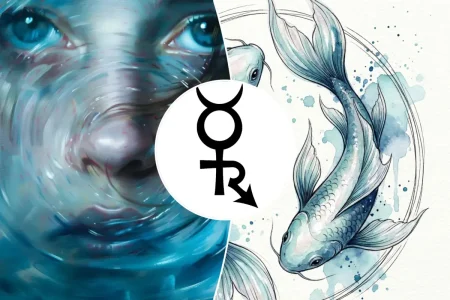Left in the Dark: Navigating Family Communication Breakdown and Potential Gift Grabs
The letter from "Left in the Dark" reveals a common familial dilemma: a communication breakdown resulting in hurt feelings and suspicion. The writer expresses bewilderment and resentment at being excluded from her cousin’s pregnancy and subsequent birth announcement, which arrived two months after the baby’s arrival via a Facebook message requesting her address. The delayed announcement and the impersonal nature of the communication lead the writer to suspect a veiled attempt at soliciting a gift.
Abby’s response offers a balanced perspective, advising caution and suggesting a more understanding approach. While acknowledging the writer’s valid feelings of exclusion, Abby reminds her that there may be untold circumstances surrounding the pregnancy or the baby’s health. She encourages empathy and understanding, suggesting there may be more to the story than meets the eye. Rather than harboring resentment, Abby recommends extending an olive branch, sending a gift and message of support, as a path toward minimizing future regrets. This approach prioritizes familial bonds and avoids escalating the situation based on assumptions.
Abby’s advice highlights the importance of open communication and the potential for misunderstandings when communication is lacking. It also touches on the delicate balance between personal feelings and familial obligations, urging readers to consider unseen factors before jumping to conclusions. The situation underscores the complexities of family dynamics and the potential for seemingly minor incidents to create significant rifts.
Disillusioned Mom: Confronting Addiction’s Aftermath and a Son’s Radical Transformation
The second letter, from "Disillusioned Mom," presents a heart-wrenching scenario: a mother’s struggle with her son’s transformed personality following his recovery from fentanyl addiction. While celebrating his two years of sobriety, she grapples with his newfound critical and condescending behavior toward his family. He justifies his hurtful words as "telling his truth," rejecting societal norms and placing the onus of emotional processing on his family.
The mother’s attempts at communication and acceptance are met with accusations of delusion and denial. She faces the difficult choice of tolerating his verbal abuse or distancing herself from him. This scenario explores the complex aftermath of addiction recovery, highlighting the potential for unintended personality shifts and strained family relationships. The son’s rigid adherence to "right or wrong" thinking and his disregard for others’ feelings suggest a potential underlying issue beyond the addiction itself.
Abby’s response questions whether the son’s extreme transformation might be linked to a cult-like recovery program. She validates the mother’s feelings and acknowledges her right to protect herself from his verbal abuse by distancing herself. This response emphasizes the importance of self-preservation in toxic relationships, even when they involve close family members. It also underscores the need to differentiate between supporting a loved one’s recovery and tolerating abusive behavior. The situation raises important questions about the potential psychological impact of certain recovery programs and the challenges faced by families navigating the long-term effects of addiction.
Navigating Family Dynamics: The Importance of Communication, Empathy, and Boundaries
Both letters exemplify the complexities of family relationships, revealing how easily communication breakdowns and unforeseen circumstances can create tension and hurt feelings. In the case of "Left in the Dark," the lack of communication surrounding the cousin’s pregnancy fuels suspicion and resentment. Abby’s advice promotes empathy and proactive communication to mitigate further conflict. The situation underscores the importance of open dialogue within families to prevent misunderstandings from escalating.
The "Disillusioned Mom" scenario reveals the potential for addiction recovery to introduce unexpected challenges to family dynamics. The son’s radical personality shift and his justification of hurtful behavior create a difficult dilemma for the mother. Abby’s response acknowledges the mother’s right to establish boundaries and prioritize her own well-being. This emphasizes the critical distinction between supporting a loved one’s recovery and enabling abusive behavior. Both scenarios highlight the delicate balance between maintaining family connections and protecting oneself from emotional harm.
Exploring Underlying Issues: Potential Causes and Considerations
In both cases, Abby’s responses encourage readers to consider underlying issues that might be contributing to the problematic situations. In the case of the cousin, Abby suggests factors like pregnancy complications or health issues with the baby as potential explanations for the delayed communication. This encourages empathy and cautions against jumping to conclusions based solely on limited information. In the case of the son, Abby raises the possibility of a cult-like recovery program influencing his extreme transformation. This prompts consideration of external factors that might be shaping his behavior.
These suggestions highlight the importance of looking beyond the surface-level interactions and considering potential root causes of conflict. Understanding the context and considering unseen factors can lead to more effective communication and problem-solving within families. Both situations underscore the complexity of human behavior and the need for nuanced approaches to navigating interpersonal challenges.
The Power of Choice: Empowering Individuals to Protect Their Well-being
Abby’s advice in both scenarios empowers individuals to make choices that prioritize their own well-being. In the case of "Left in the Dark," the writer is encouraged to take the high road and extend an olive branch, thereby minimizing potential regrets and maintaining a familial connection. However, the choice to engage remains with the writer. In the case of "Disillusioned Mom," Abby validates the mother’s right to distance herself from her son’s abusive behavior, despite the familial bond. This highlights the importance of setting boundaries and protecting oneself from emotional harm, even in the context of family relationships.
This emphasis on personal agency empowers individuals to make informed decisions based on their own needs and circumstances. It reinforces the idea that maintaining healthy relationships requires respect, communication, and a willingness to set boundaries when necessary. Both scenarios underscore the importance of self-care and the right to prioritize one’s own emotional well-being.
The Enduring Relevance of Dear Abby: Navigating the Complexities of Human Relationships
The "Dear Abby" column continues to resonate with readers because it addresses timeless issues surrounding human relationships, communication, and ethical dilemmas. These two letters exemplify the challenges faced within families, highlighting the complexities of communication breakdowns, addiction’s impact, and the delicate balance between support and self-preservation. Abby’s responses offer guidance based on empathy, common sense, and a deep understanding of human nature. She encourages readers to consider multiple perspectives, acknowledge their own feelings, and make choices that promote healthy relationships and personal well-being. The enduring popularity of "Dear Abby" underscores the ongoing need for advice and support in navigating the complexities of interpersonal relationships.














